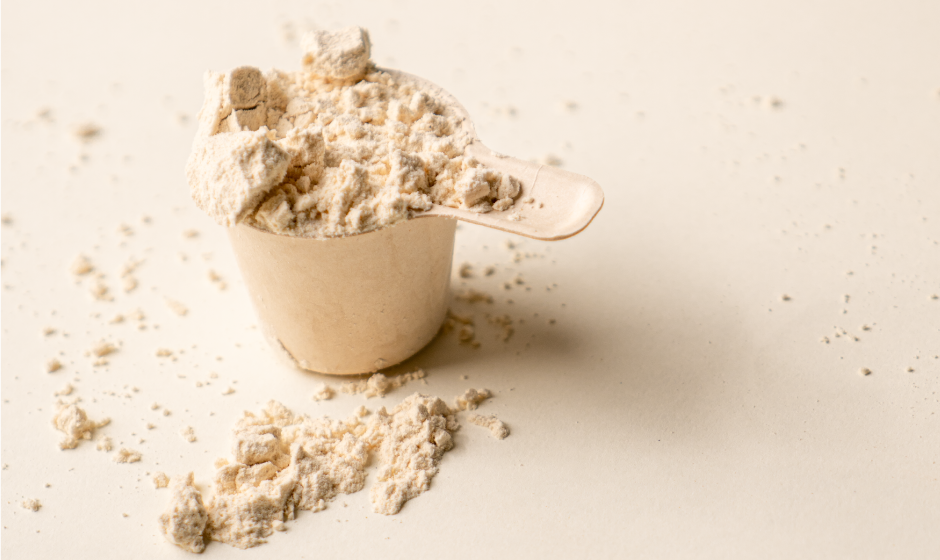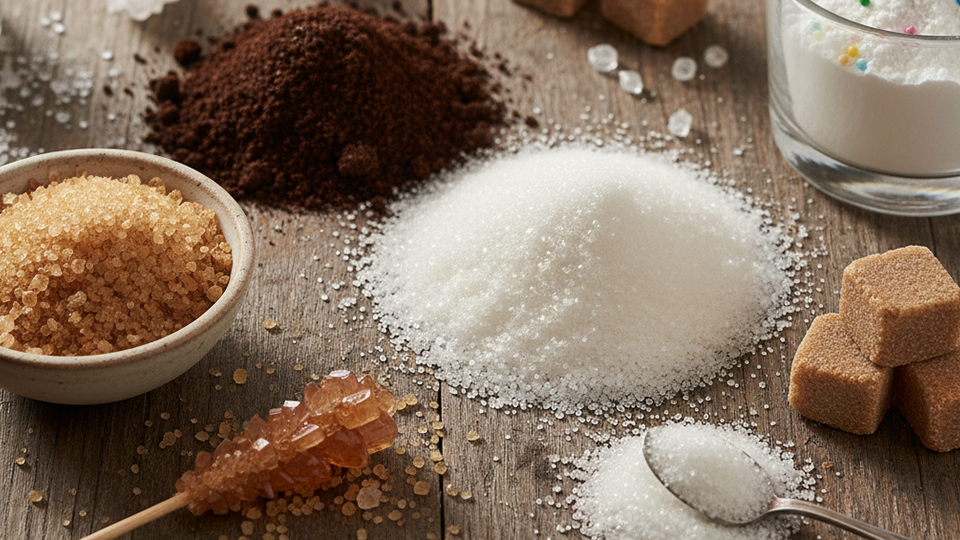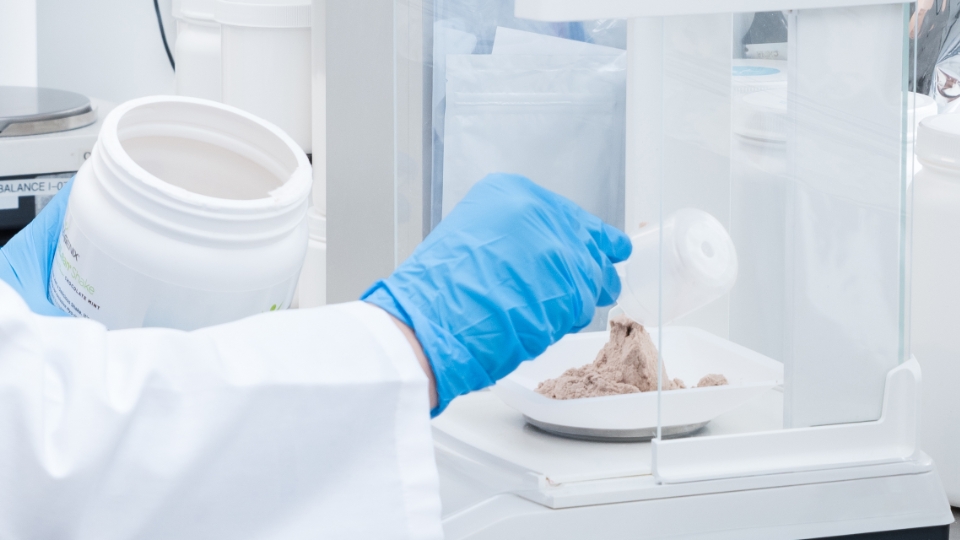Undenatured, grass-fed whey protein is at the core of our dairy-based shakes. Whey offers outstanding benefits on its own, but Isagenix sources exceptional whey protein to ensure our shakes deliver both excellent nutrition and outstanding taste.
What is Whey Protein?
Whey protein is such a common ingredient that you might not have stopped to consider where it comes from when you take a sip of your morning shake.
Whey is a component of milk. It’s the liquid that is separated from the other milk components as part of a traditional cheesemaking process. Before the nutritional benefits of whey were appreciated, cheesemakers thought of it as just a byproduct (1). Now it’s a valuable and highly sought-after ingredient.
Milk has two main protein components: casein and whey. Casein is the solid protein component in milk that’s used to make cheese. About 80% of milk protein is casein while whey makes up just 20% (2).
Benefits of Whey
Whey protein is among the highest quality protein sources available. It provides a complete amino acid profile rich in essential amino acids, particularly branched-chain amino acids. It is quick to digest and rapidly absorbed by the body (3).
Because of its unique nutritional properties, the benefits of whey protein have been studied for decades, including benefits for supporting weight loss, muscle building, and exercise recovery (4-6).
Compared to other protein sources, whey protein helps support greater appetite control after a meal (7). It also contributes to the body’s natural detoxification process by promoting the production of glutathione, an important substance that protects against oxidative stress (8, 9).
Advantages of Undenatured Whey
Whey protein has outstanding nutritional benefits, such as the essential amino acids it provides. It also offers functional benefits, like support for immune health. Many of the functional benefits of whey protein are related to the biological activity of proteins found in whey.
Prolonged exposure to harsh conditions like excessive processing damages proteins and causes them to lose their unique biological activity. This damage is called denaturation.
Denatured proteins still have the same basic nutritional properties as proteins in their undenatured state but don’t retain their original biological activity. Traditional methods of separating whey from the other components in milk involve harsh processing techniques that result in denatured proteins.
Grass-fed, Flash-Pasteurized, Ultra-Filtrated, Undenatured
Isagenix uses only the best quality, responsibly sourced whey protein for our dairy-based shakes. Our whey protein is sourced primarily from dairy farmers in New Zealand and other suppliers in the US and Australia who also meet our strict quality standards. We use milk from grass-fed cows who are not treated with hormones or routine antibiotics.
Our whey protein starts as freshly collected milk that is flash pasteurized in a process that takes 15 seconds to complete. This essential step destroys pathogenic bacteria like E. coli while ensuring dairy proteins are not damaged (10).
Next, whey is separated from the other components of milk. Our whey protein is produced using an advanced membrane ultrafiltration technique. Unlike typical processing, this gentle, temperature-controlled method uses a selectively permeable membrane to separate the whey from whole milk. The result is undenatured whey protein that has outstanding nutritional benefits and a superior flavor.
Our no-compromise commitment to quality shows in all our ingredients and whey protein is no exception. Isagenix partners with quality dairy producers to supply the best undenatured, grass-fed whey protein for our dairy-based shakes.
References
- Guo M, Wang G. History of Whey Production and Whey Protein Manufacturing. In: Whey Protein Production, Chemistry, Functionality, and Applications, M. Guo (Ed.). 2019 Feb 1.
- Madureira AR, Pereira CI, Gomes AMP, Pintado ME, Xavier Malcata F. Bovine whey proteins – Overview on their main biological properties. Food Res Int. 2007;40(10):1197-1211. doi:10.1016/j.foodres.2007.07.005
- Devries MC, Phillips SM. Supplemental protein in support of muscle mass and health: advantage whey. J Food Sci. 2015;80 Suppl 1:A8-A15. doi:10.1111/1750-3841.12802
- Reitelseder S, Agergaard J, Doessing S, Helmark IC, Lund P, Kristensen NB, Frystyk J, Flyvbjerg A, Schjerling P, van Hall G, Kjaer M, Holm L. Whey and casein labeled with L-[1-13C]leucine and muscle protein synthesis: effect of resistance exercise and protein ingestion. Am J Physiol Endocrinol Metab. 2011 Jan;300(1):E231-42.
- Tang JE, Moore DR, Kujbida GW, Tarnopolsky MA, Phillips SM. Ingestion of whey hydrolysate, casein, or soy protein isolate: effects on mixed muscle protein synthesis at rest and following resistance exercise in young men. J Appl Physiol. 2009 Sep;107(3):987-92.
- Morton RW, Murphy KT, McKellar SR, Schoenfeld BJ, Henselmans M, Helms E, Aragon AA, Devries MC, Banfield L, Krieger JW, Phillips SM. A systematic review, meta-analysis and meta-regression of the effect of protein supplementation on resistance training-induced gains in muscle mass and strength in healthy adults. Br J Sports Med. 2018 Mar;52(6):376-384.
- Luhovyy BL, Akhavan T, Anderson GH. Whey proteins in the regulation of food intake and satiety. J Am Coll Nutr. 2007 Dec;26(6):704S-12S.
- Zavorsky GS, Kubow S, Grey V, Riverin V, Lands LC. An open-label dose-response study of lymphocyte glutathione levels in healthy men and women receiving pressurized whey protein isolate supplements. Int J Food Sci Nutr. 2007 Sep;58(6):429-36.
- Pastore A, Federici G, Bertini E, Piemonte F. Analysis of glutathione: implication in redox and detoxification. Clin Chim Acta. 2003 Jul 1;333(1):19-39.
- Rynne NM, Beresford TP, Kelly AL, Guinee. Effect of milk pasteurization temperature and in situ whey protein denaturation on the composition, texture and heat-induced functionality of half-fat Cheddar cheese. Int Dairy J. 2004 Nov;14(11):989-1001.





